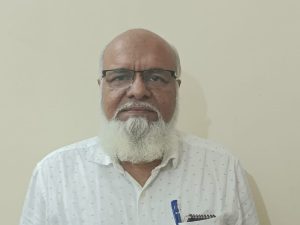
In the intricate tapestry of human societies, the threads of diversity, culture, and identity are interwoven to create vibrant and dynamic communities. The pursuit of unity and harmony amid this diversity is a goal that transcends boundaries, cultures, and faiths. However, the rise of divisive politics has posed a formidable challenge to this ideal, threatening to unravel the very fabric that holds societies together.
This phenomenon has negative implications for a country’s social fabric, political discourse, and unity.
Divisive politics thrives on exploiting differences and fostering discord among various segments of society. This approach seeks to fragment communities along lines of religion, ethnicity, region, and other identities, with potentially disastrous consequences. The ramifications are often tangible, eroding social bonds, triggering conflicts, and weakening the collective strength that unity brings. This has resulted in tensions, conflicts, and a polarised electorate. India, for instance, has witnessed numerous communal riots since Independence, with Muslims often bearing the brunt of such conflicts.
The rise of divisive politics has cast a shadow over societies across the globe, undermining the progress made toward unity and tolerance. Communities that were once bound by shared values and history find themselves divided, often resulting in social unrest, violence, and animosity. It is imperative to recognise the dire consequences that divisive politics can bring and work tirelessly to counter its effects.
Media’s Role in Polarisation: A section of media plays a crucial role in perpetuating polarisation. Sensationalism, biased reporting, and the amplification of divisive narratives can contribute to an ‘echo chamber effect,’ where individuals are exposed only to viewpoints that align with their existing beliefs. This reinforces polarisation by preventing open discourse and creating an environment where different perspectives are marginalised.
Impact of Social Media: In the digital age, social media platforms have emerged as powerful tools that can both connect and divide. Algorithms often curate content that caters to users’ preferences, inadvertently reinforcing pre-existing biases. This again leads to the formation of echo chambers, where individuals are surrounded by like-minded opinions and cut off from diverse viewpoints.
Religion, Caste, and Region: Political parties frequently resort to polarising rhetoric to attract voters and secure electoral victories. By focusing on divisive issues and promoting an ‘us v/s them’ mentality, parties seek to solidify their support base. While this approach might yield short-term success, it can have lasting repercussions for national unity.
Communal Violence: Communal violence has been a persistent issue in India’s history, often triggered by the political interests of some leaders seeking to consolidate their power. Such incidents deepen mistrust and reinforce stereotypes, escalating tensions and driving polarisation. Minority communities can become pawns in the game of polarisation.
The Way Forward
Unity and harmony are the cornerstones of a stable and prosperous society. In a world characterised by diverse beliefs, traditions, and backgrounds, embracing these values becomes all the more essential. Unity empowers societies to face challenges collectively, while harmony nurtures an environment where different perspectives can coexist in a spirit of mutual respect.
Dialogue: Fostering dialogue and understanding among different religious and cultural groups is a vital step in combating divisive politics. Open and respectful conversations can bridge the gaps created by misinformation and stereotypes, allowing individuals to appreciate the diversity that enriches their society. Engaging in interfaith conversations among scholars representing diverse religions could foster a deeper comprehension of one another’s spiritual convictions.
Education: Education plays a critical role in fighting divisive politics. By instilling values of tolerance, respect, and critical thinking, education equips individuals with the ability to discern misinformation and rise above divisive narratives. Students, at every level, should be taught about different faiths and their core values, so that they may realise each other’s natural existence.
Islamic Values of Unity and Compassion: Islam emphasises peace, tolerance, and compassion, as well as provides a rich framework for promoting unity. It encourages believers to uphold values of inclusivity and respect for all, regardless of their backgrounds. This emphasis on shared values serves as a potent antidote to divisive politics. Islamic teachings underline the importance of social justice, equity, and harmonious coexistence. The Qur’ān (4:1) emphasises the oneness of human beings:
“O mankind! Reverence your Guardian-Lord, who created you from a single soul, created, of like nature, the mate, and from them scattered countless men and women, reverence Allah, through whom ye demand your mutual (rights), and (reverence) the wombs (That bore you): for Allah ever watches over you.”
The Qur’ān (2:256) denounces the use of force in terms of religion. It is ultimately the right of people to choose any religion they are happy with: “Let there be no compulsion in religion; Truth stands clear from error.”
Compassion, empathy, and justice lie at the core of Islam, which can guide toward policies that bridge societal gaps and celebrate diversity.
In the year 2 A.H. the Prophet of Islam ﷺ signed a treaty with the Christians of Sinai Land which was written by Ali. A part of that treaty reads: “I (Prophet Muhammad) promise that I will not change their priests and monks nor do I expel them from their worshipping places. I do not prohibit their pilgrims from their travels, nor do I destroy their churches. I do not convert any churches to mosques and whichever Muslim does so has violated God’s covenant… Muslims should not force them to anything. They must be kind to them and respect them all… Should their churches require any repair, Muslims should help them as much as they can and they should allow Christians to practise their rituals…”
Collaborative Efforts for an Inclusive Society: The pursuit of unity and harmony requires a collective effort from individuals, communities, and leaders alike. Regardless of faith or background, the shared goal of nurturing a harmonious and inclusive society calls for joint action. By embracing common values and working hand in hand, diverse societies can overcome the challenges posed by divisive politics and build a future defined by unity, understanding, and prosperity.
United We Stand, Divided We Fall: In conclusion, the journey toward unity and understanding demands our unwavering commitment. As we stand at the crossroads of divisive politics, it’s essential to recognise our shared humanity and the strength that comes from embracing diversity. By fostering open dialogue, promoting education, and drawing inspiration from the values of faith, we can strive for a society where unity prevails over division. As the world faces complex challenges, the call for unity and understanding has never been more urgent. Let us rise above the rhetoric of polarisation and work together for a future characterised by cooperation, respect, and coexistence.
[The writer is Asst. Secretary, JIH. miqbal1959@gmail.com]




